The Definition of Excellence in the Modern Era
Excellence traditionally implied a pursuit of superior quality and performance in a specific domain. In the digital era, however, this definition has expanded. Excellence now encompasses not just achieving high standards but also the ability to innovate, adapt, and leverage technology effectively. It’s about being at the forefront of progress, anticipating trends, and staying relevant in an ever-changing environment.
1. Leveraging Technology for Operational Excellence
In the modern business world, technology is a primary driver of excellence. From cloud computing to artificial intelligence (AI), technological tools and platforms enable businesses to enhance efficiency, reduce costs, and improve decision-making.
Cloud Computing: Cloud services offer scalable resources, which means businesses can easily adjust their IT infrastructure according to their needs. This flexibility fosters operational excellence by allowing companies to quickly adapt to market changes and manage resources more efficiently.
Artificial Intelligence (AI): AI technologies, including machine learning and natural language processing, are transforming industries by automating routine tasks and providing advanced analytics. For instance, AI-driven data analysis can uncover insights that drive strategic decisions, while automation tools can streamline operations and reduce human error.
2. The Role of Innovation in Achieving Excellence
Innovation is a cornerstone of excellence in the digital age. It involves not only adopting new technologies but also fostering a culture that encourages creative problem-solving and continuous improvement.
Fostering a Culture of Innovation: Organizations that prioritize innovation create environments where employees are encouraged to think outside the box and experiment with new ideas. This culture is supported by leadership that values and invests in research and development, as well as by providing resources and time for experimentation.
Embracing Emerging Technologies: Staying ahead of technological trends is vital for maintaining a competitive edge. Businesses must continuously evaluate and integrate emerging technologies that align with their goals. For example, blockchain technology is revolutionizing sectors like finance and supply chain management by offering enhanced security and transparency.
3. The Importance of Adaptability
Adaptability is crucial for achieving and maintaining excellence in a digital world where change is the only constant. Organizations and individuals must be agile, ready to pivot strategies, and embrace new ways of thinking.
Agile Methodologies: In software development and project management, agile methodologies promote flexibility and responsiveness. By breaking projects into smaller, manageable units and iterating based on feedback, teams can adapt quickly to changes and deliver high-quality results.
Continuous Learning: For individuals, staying relevant means committing to lifelong learning. This involves acquiring new skills, staying updated on industry trends, and being open to new experiences. Online courses, webinars, and professional certifications are valuable resources for personal and professional growth.
4. Balancing Technological Advancement with Human Touch

While technology is a key driver of excellence, it’s essential to balance it with the human element. Technology should enhance, not replace, the human touch in customer service, leadership, and team dynamics.
Customer Experience: Technology can streamline interactions and personalize services, but human empathy and understanding are irreplaceable. Businesses that excel in customer experience leverage technology to support and enhance human interactions rather than substitute them.
Leadership and Team Dynamics: Effective leadership involves more than just implementing technological solutions. It requires understanding team dynamics, motivating employees, and fostering a collaborative environment. Leaders who combine technological acumen with emotional intelligence can drive their organizations to greater heights of excellence.
5. The Ethical Dimension of Excellence
As technology advances, ethical considerations become increasingly important. Achieving excellence involves not only leveraging technology effectively but also doing so responsibly.
Data Privacy and Security: With the proliferation of data, safeguarding personal and organizational information is paramount. Businesses must implement robust security measures and comply with regulations such as GDPR to protect data and build trust with stakeholders.
Ethical AI Use: The use of AI must be governed by ethical principles to avoid biases and ensure fairness. Organizations should establish guidelines for responsible AI deployment and regularly audit their systems to address potential ethical concerns.
6. Case Studies of Excellence in the Digital Age
To illustrate these principles, let’s explore a few examples of organizations and individuals who exemplify excellence in the digital age.
1. Amazon: Amazon’s success is a testament to its commitment to operational excellence and innovation. By leveraging cloud computing through Amazon Web Services (AWS), the company has not only transformed its own operations but also enabled countless other businesses to scale effectively. Additionally, Amazon’s use of AI for personalized recommendations and supply chain management showcases its ability to integrate technology with business strategy.
2. Tesla: Tesla’s approach to innovation is driven by its mission to accelerate the world’s transition to sustainable energy. The company’s advancements in electric vehicle technology, autonomous driving, and energy solutions illustrate its dedication to pushing the boundaries of what’s possible. Tesla’s success highlights the importance of combining technological innovation with a clear, impactful vision.
3. Tim Ferriss: As an individual, Tim Ferriss exemplifies excellence through his commitment to continuous learning and experimentation. His work as an author, entrepreneur, and podcast host reflects a deep understanding of productivity, personal development, and the importance of adapting to new trends. Ferriss’s approach to self-improvement and his exploration of unconventional strategies serve as an inspiration for others seeking excellence in their personal and professional lives.
Conclusion
Achieving excellence in the digital age requires a multifaceted approach that blends technological prowess with a commitment to innovation, adaptability, and ethical considerations. By leveraging technology effectively, fostering a culture of innovation, balancing human and technological elements, and addressing ethical concerns, individuals and organizations can navigate the complexities of the digital world and achieve lasting success. As we move forward, embracing these principles will be essential for staying ahead in a landscape defined by rapid change and endless possibilities.












